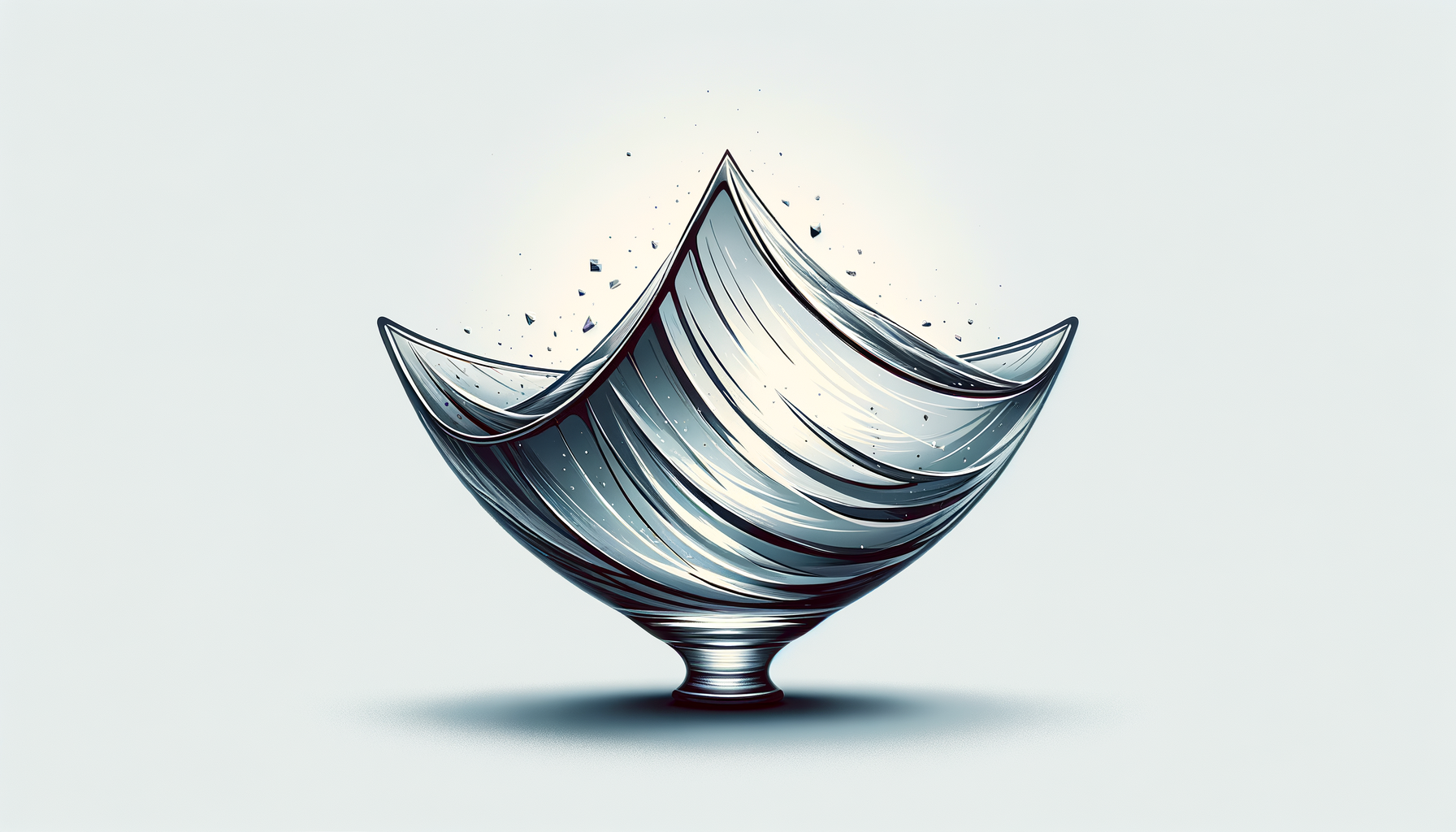Byline: Failure doesn’t just shape you; it sometimes throws you overboard into choppy waters. But hey, that’s where the best stories come from.
The Storm That Sank My Perfect Plan
I was thirteen the first time I really failed — and I mean publicly failed. The kind of failing where people watch, jaws clenched in sympathy or stifling laughs behind their hands. It was the annual Kennebunkport Sailing Regatta, the event my entire summer revolved around. My family had competed for generations, and I was about to steer my dad’s beloved sloop, the Atlantic Breeze, through her maiden voyage as my ship to captain. With a name like that, how could I possibly lose?
Spoiler: I lost. But I didn’t just lose, dear reader. I capsized.
Did I mention my sailing "crew" included my best friend, Brynn, who couldn’t tell port from starboard, and my younger brother, Sam, whose greatest claim to fame was finishing an entire lobster roll in two bites? Before the race even began, my crew was more chaos than cohesion. Sam tripped climbing aboard, Brynn tangled herself in a sheet (non-sailors, that’s a rope, not your bedspread), and I decided my strategy would rely on sheer enthusiasm and vague hand gestures. Picture a toddler with a captain’s beret.
Things went wrong almost immediately. I misjudged the starting mark, and our main sail flapped in the wind like an untamed moose flag. Rounding the second buoy, we collided with another boat — piloted by my crush, naturally (small New England towns are like that). To top it all off, I somehow managed to steer into a swell, pulling us sideways. Cue the drama. In what felt like slow motion, the breeze turned into a gale, the boat keeled hard, and then came the dreaded splash. There I was, flailing in the freezing Atlantic, the distant sound of seagulls cackling over my watery defeat.
As failure goes, it was as picturesque as it was mortifying.
The Aftermath: Wet, Salty, and Wiser?
That night, huddled under a blanket of shame (and an actual blanket — that ocean is cold), I swore to myself I’d never take the helm of anything, ever again. Captaining a boat? Nope. Leading a group project? Hard pass. Planning anything without a safety net? Not without a solid maritime insurance policy. Failure can do that to you — it tricks your brain into thinking you’ve lost the thread. That you tried and flopped and maybe trying again just isn’t your thing.
But here’s the twist: Failure, as it turns out, might just be life’s best teacher. Like a gruff old sea captain handing you the lessons of the ocean, it doesn’t coddle, but it does make you stronger if you let it. Even on the worst days — or, in my case, the wettest — the act of pulling yourself back out is where the real magic happens.
Anchoring Resilience: What Capsizing Taught Me About Life (and Love)
They say, “Fail once, try again.” I say, “Capsize once, tie yourself to the mast next time.” It doesn’t matter whether your waves are made of salty brine or relationship heartbreaks — learning how to brace yourself in rough waters is a skill worth its weight in gold.
Here’s what I learned from that sun-drenched, soggy disaster:
-
Preparation is Everything (But Don’t Overthink It). When I climbed onto the Atlantic Breeze, I thought I could coast on family legacy. But here's the thing: past success doesn’t steer the boat for you. You’ve got to be ready for the unexpected — whether it’s a rogue wave or an awkward first conversation over coffee. The key is balancing preparation with flexibility. For relationships? Know what you want, but leave room for surprises. Life's most meaningful connections don’t come with a map and compass.
-
Your Crew Matters More Than You Think.
Brynn and Sam weren’t yacht-club quality sailors, but they were there. They laughed as they untangled ropes, and they didn’t abandon ship when things got tough (even though Sam’s first instinct was to doggy-paddle ashore). In relationships, your “crew” — your partner, your friends — are the people who will weather storms with you. Choose them wisely, and be ready to return the favor. -
Laugh at Yourself. A Lot.
Look, you’re going to flail. It could be in the middle of a regatta, or maybe it’s during a first date when you accidentally call your ex’s name (we’ve all been there... right? Please confirm this isn’t just me). The choice to laugh instead of wallow is what keeps failure from swallowing you whole. Trust me, seagulls sound a lot less intimidating when you're laughing louder than they are. -
Perfection is a Myth, Anyway.
Do you know how many times the great captains of history ran aground before they found their sea legs? Same goes for literally every other kind of success, from career wins to love stories. We’re all just charting messy, beautiful courses. A graceful failure says more about you than a perfect win ever could.
Finding the Horizon After a Failure
As you might have guessed, I didn’t let one wet and bedraggled afternoon define my sailing career. The following year, I sat my family down and begged for lessons from my dad, promising to listen instead of waving away advice. I practiced with Brynn and found a crew that complemented my (ahem) evolving skills. The next regatta? We didn’t win, but we finished the race. No capsizing. Just a finish line and an overwhelming sense of, “Hey, I can do this.”
But life doesn’t always give you concrete finish lines, and it doesn’t come with a guaranteed sense of redemption. Sometimes failure is like a foggy morning out at sea — it lingers, unpredictable and unsettling. That’s the thing, though: you just keep steering. You keep throwing your sail up, even if the wind isn’t blowing yet.
Why Failure Makes Better Storytellers (and Lovers)
Here’s a universal truth: people who’ve failed tend to make the best captains of their own lives. They also make excellent conversationalists. Who would you rather chat with — someone who’s never made a mistake, or the person who capsized their dad’s boat in front of their middle school crush? Stories connect us, and failure — especially the kind you can laugh about later — is at the heart of so many great ones.
In relationships, failure breeds empathy. When you’ve had your own moments of struggle, you’re better equipped to hold space for the person across from you who’s going through their own storm. You’ve been there. You know how to steady their ship without jumping overboard yourself.
Your Own Oceans to Sail
Whatever your personal regatta moment looks like, here’s the truth: you can’t learn to navigate until you’re willing to risk capsizing. Failure isn’t a shipwreck. It’s a storm, sure, but all storms eventually pass. Learning how to rise — soaked, cold, maybe laughing hysterically — is where the transformation happens.
So take the helm, find your crew, and keep going. After all, the horizon is always waiting. Even if your path to it gets a little, well, wavy.




















